Search Results
Showing results 1 to 20 of 21
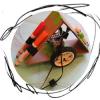
Push Pull Painter
Source Institutions
In this activity, learners create painting machines that can paint moving forwards and backwards.
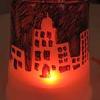
Night Lights
Source Institutions
In this activity, learners create night lights using a plastic cup, programmable PICO Cricket, tri-color LED, and sensor.
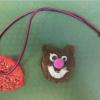
Milk Plastic
Source Institutions
In this activity, learners transform everyday milk into small plastic figurines and jewelry. Use this activity to introduce learners to monomers and polymers.

Balancing Sculptures
Source Institutions
In this activity, learners will use a variety of household and/or natural objects to design a sculpture that balances from a single point.
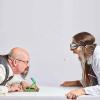
Marshmallow Catapult
Source Institutions
In this activity, learners explore physics by building a catapult that launches marshmallows with household objects.
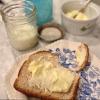
Butter Up
Source Institutions
In this activity, learners will discover how to make butter from scratch. One optional tips includes adding marbles to speed up the process.
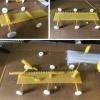
DIY Pasta Rover
Source Institutions
In this activity, learners design and build a NASA rover using raw pasta and candy with a limited imaginary budget.
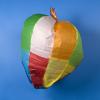
Fly a Hot-Air Balloon
Source Institutions
Learners assemble a hot-air balloon from tissue paper. The heated air (from a heat gun) inside the balloon is less dense than the surrounding air and causes the balloon to float.
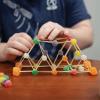
Building Bridges
Source Institutions
In this activity, learners explore the engineering design process and the basic mechanics behind building bridges as they build one themselves using gumdrops and toothpicks.
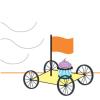
Cupcake Delivery
Source Institutions
In this design challenge, learners will create wind-powered contraptions to transport a load, such as a cupcake or another small object, and test to see if they work.
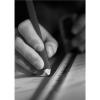
Perspectives: Powers of 10
Source Institutions
In this activity, learners complete a series of drawing activities to explore scale and powers of 10. Learners first trace each other on 1-meter-square pieces of paper.
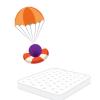
Solve The Fall
Source Institutions
In this twist on a classic design challenge, learners will try to stop a bouncy ball from bouncing as they explore how to control the fall of an object.
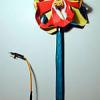
Wandering Wands
Source Institutions
In this activity, learners construct wands that play different notes depending on information from light sensors programmed via a PICO Cricket.
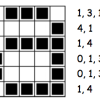
Colour by Numbers: Image Representation
Source Institutions
This activity shows learners how computers use numbers to represent pictures. A grid is used to represent the pixels (short for picture elements) of a computer screen.
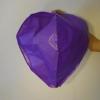
Hot Air Balloon
Source Institutions
In this activity, learners build a hot air balloon using just a few sheets of tissue paper and a hair dryer.
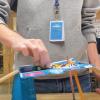
Build a Bridge
Source Institutions
In this activity, learners use design thinking to design and build their own bridge out of household materials including adhesives and/or connectors.
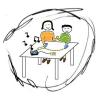
Making Circuits
Source Institutions
In this activity, learners explore electricity and conductivity to find that many things conduct electricity including copper, pencil lead, fruit, play-doh, and even people!
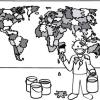
The Poor Cartographer: Graph Coloring
Source Institutions
In this activity, learners help a poor cartographer color in the countries on a map, making sure each country is colored a different color than any of its neighbors.
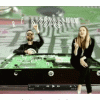
Sound Representation: Modems Unplugged
Source Institutions
In this activity, learners listen to songs and decode hidden messages based on the same principle as a modem. As a final challenge, learners decode the binary messages in a music video.
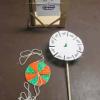
Spinning Illusions
Source Institutions
In this activity, learners construct three optical illusion toys to examine how our brains play tricks on what we see.
